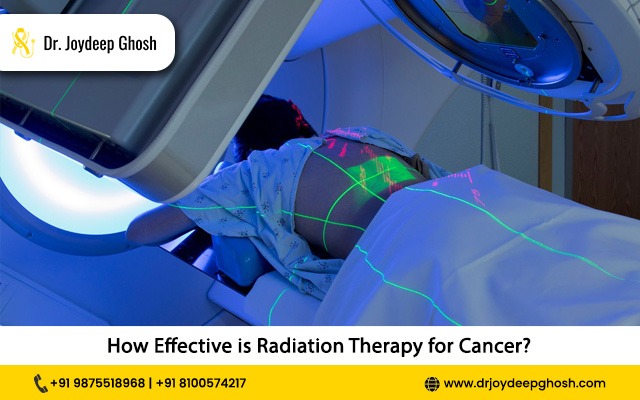Radiation therapy uses high-energy radiation to target and destroy cancer cells. Its effectiveness can vary depending on numerous factors, including the type and stage of cancer, as well as individual patient characteristics. Here’s a closer look at how effective precision radiation oncology can be and what influences its success.
Understanding Radiation Therapy
Radiation therapy works by damaging the DNA within cancer cells. This prevents them from growing and dividing. The radiation is precisely directed to minimize damage to surrounding healthy tissue. This targeted approach provides a high dose of radiation to be administered directly to the tumour while sparing nearby organs.
Effectiveness by Cancer Type and Stage
- Localized Cancers: Radiation therapy is particularly effective for cancers that are localized or confined to a specific area. For instance, in early-stage cancers such as prostate cancer or breast cancer, radiation can be used to eradicate tumours. In these cases, radiation often results in high success rates and can sometimes be curative.
- Advanced Cancers: For more advanced cancers, radiation therapy may not cure the disease but can be highly effective in managing symptoms. It is frequently used to shrink tumours, reduce pain or control bleeding. For cancers that have spread (metastasized) to other parts of the body, radiation can help to control the disease and prevent further complications.
- Combination with Other Therapies: Precision radiation oncology is often used in conjunction with other treatments such as chemotherapy or immunotherapy. This multimodal approach can enhance its effectiveness. For instance, radiation may be used to shrink a tumor before surgery, making it easier to remove.
Factors Influencing Effectiveness
- Cancer Type: Different cancers respond to radiation therapy in varying degrees. Some types, such as lymphomas and testicular cancers, are particularly sensitive to radiation, while others may require higher doses or combined treatments to achieve optimal results.
- Stage and Size of Tumor: Smaller, localized tumors are generally more amenable to radiation therapy than large, invasive tumors or those that have spread extensively.
- Patient Health and Treatment Plan: The health of the patient and the specific radiation regimen can impact effectiveness. Personalized treatment plans that consider the patient’s unique medical history and tumour characteristics are crucial for maximizing efficacy.
Conclusion
If you or a loved one is considering precision radiation oncology, discussing the specific benefits with a doctor will help determine the best treatment approach for your situation.




